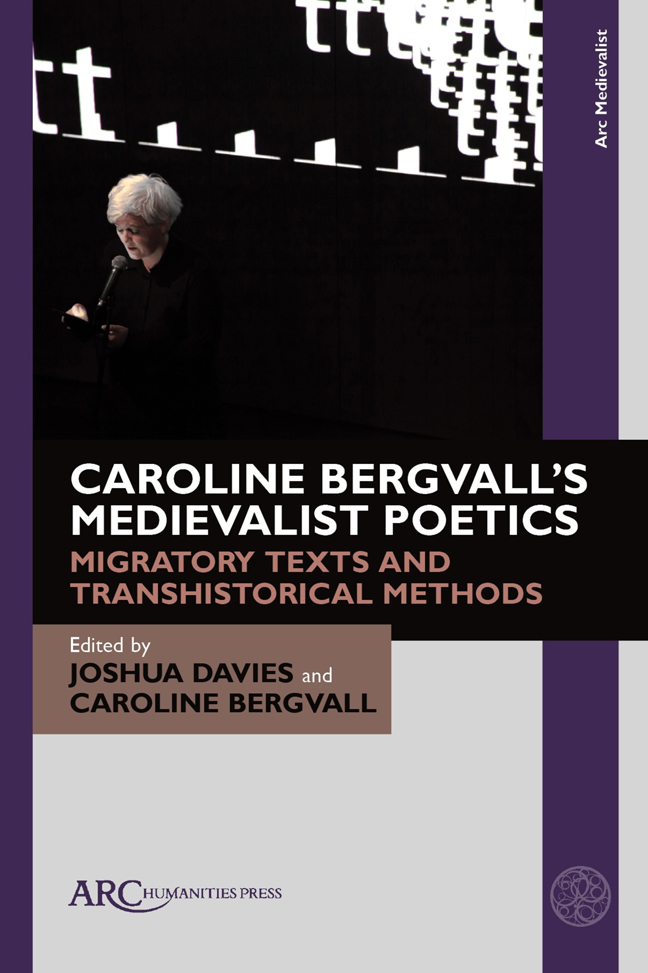Chapter 11 - Forensic Listening: M. NourbeSe Philip’s Zong!, Caroline Bergvall’s Drift, and the Contemporary Long Poem
Published online by Cambridge University Press: 20 February 2024
Summary
The room was busy the living were noisy crowding out the place the dead were marching through noone was paying attention thats when I started to
MY TOPIC IN this brief essay is two complex, risky, recalcitrant, and urgent long poems written, performed, and published in the last two decades as artfully printed, small-press books. Although the poets who conceived these projects surely knew of each other—both appear in prominent antho logies of contemporary writing; both pre-sent their work in gallery, university, and performance settings; both have been widely and generously reviewed—as far as I know, these poems have been composed, staged, and, as far as possible, explained without reference to each other.
Despite crucial differences in the poets’ backgrounds and commitments, M. Nour-beSe Philip’s Zong! (2008) and Caroline Bergvall’s Drift (2014) are eerily similar in topic, strategy, and impact. My hope here is to use this coincidence—this simultaneous turn to sound-saturated long poems on the topic of disasters at sea—to think about what the long poem allows and/or abets at this moment of global insecurity, vulnerability, desta-bilization, and endangerment.
It is relatively easy to say what these poems do not do. Although they contain autobio graphical elements, they are not importantly about the growth, trial, or triumph of a single consciousness. Although they move toward lyric, they ultimately veer away from lyric temptations and consolations. Although they invoke diasporic dispersions from one or another homeland, they are not poems about preserving a tribe, found-ing a nation, or codifying a set of customs and traditions. And, finally, although they are crossed by apprehensions of cosmo logical forces, they are not interested in naming dei-ties or tracing the evolution of world systems. These long poems are not, that is, in con-versation with Wordsworth’s Prelude, Whitman’s Song of Myself, Homer’s Odyssey and Iliad, Virgil’s Aeneid, Dante’s Divine Comedy, Milton’s Paradise Lost, Pound’s Cantos, H. D.’s Helen in Egypt, or Zukofsky’s “A”.
This doesn’t mean, however, that these two long poems talk only to themselves. Philip’s Zong!, the title of which names the slave ship whose story it recounts, all but shouts the resonant longpoem word “song!,” and Bergvall’s Drift takes the anonymous tenth-century Old English poem The Seafarer as a “template” (130) and the contempo-rary Caribbean writer, poet, and philosopher Édouard Glissant as a guide (154). This said, however, Zong! and Drift are hybridities, oddities, and provocations.
- Type
- Chapter
- Information
- Caroline Bergvall's Medievalist PoeticsMigratory Texts and Transhistorical Methods, pp. 95 - 106Publisher: Amsterdam University PressPrint publication year: 2023



